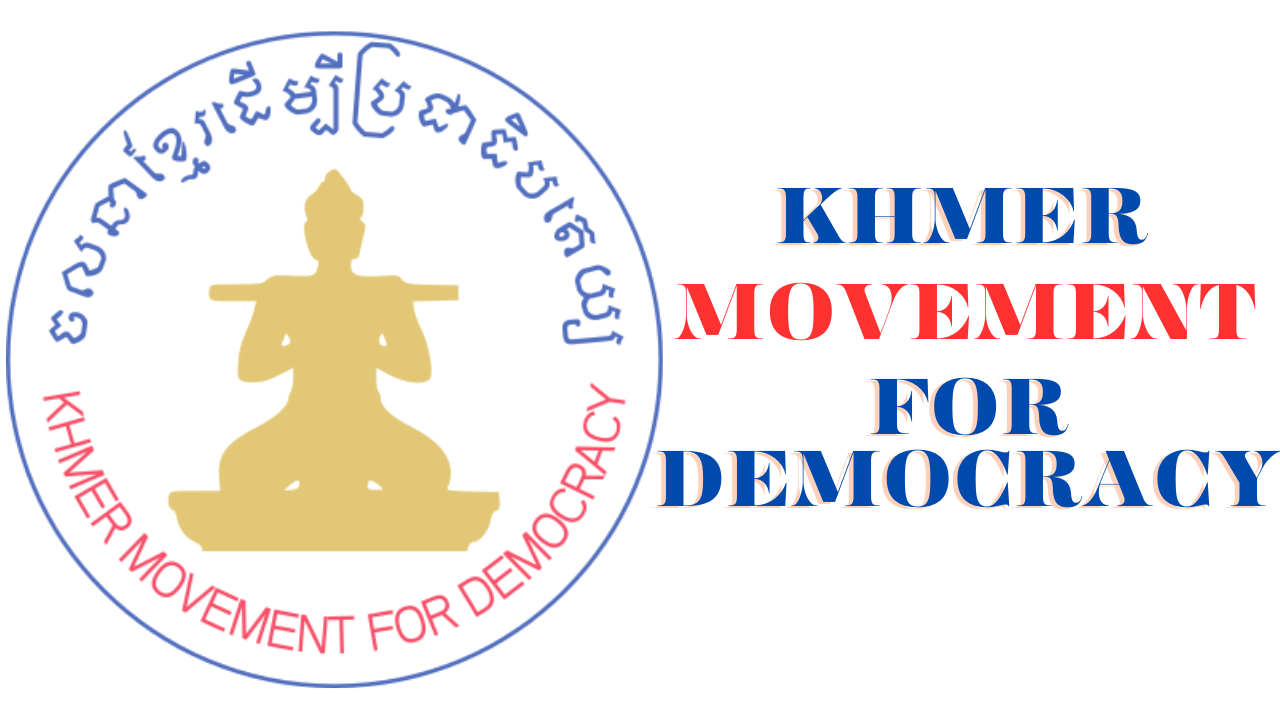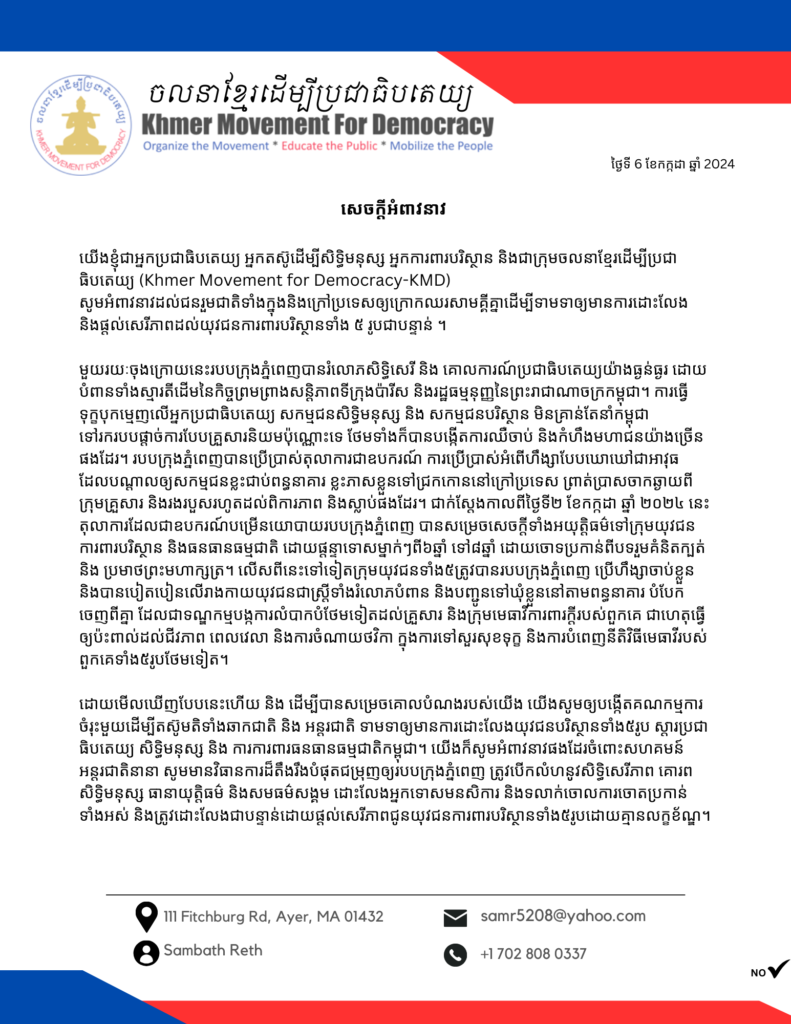Recent raids carried out by the Cambodian authorities on cyber-slavery compounds in Sihanoukville can’t disguise official complicity in the thriving racket.Hundreds of arrests were made by Cambodian authorities in early March.[1] These are foot soldiers rather than main players. Not a single person has ever been prosecuted for running a cyber-slavery compound in Cambodia.
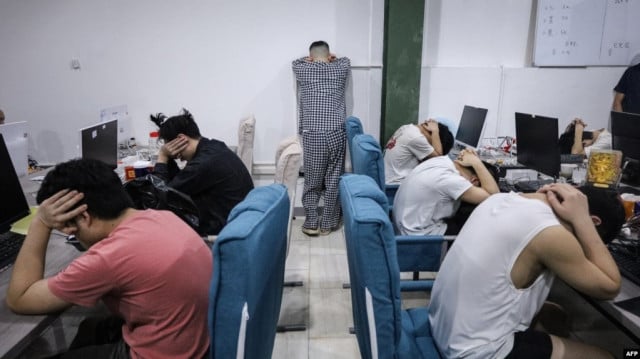
Trafficking victims are recruited from China and from an ever-growing range of other countries globally with the promise of well-paid, legitimate employment in Southeast Asia. The victims are often young and English speakers are particularly prized.
When they arrive, they find themselves forced to work in closed compounds with the task of tricking people who are trying to start a new relationship online into parting with their money.
They are forced to keep working at their screens for as long as it takes to hit profit targets. Failure to bring in enough money, or any attempt to escape, leads to punishments including beatings and electrocution.
The amounts that have been stolen by the scammers are astounding. Academics at the University of Texas have published research showing that crypto-currency transfers from scam operations into exchange deposit accounts total $75 billion since January 2020. [2]
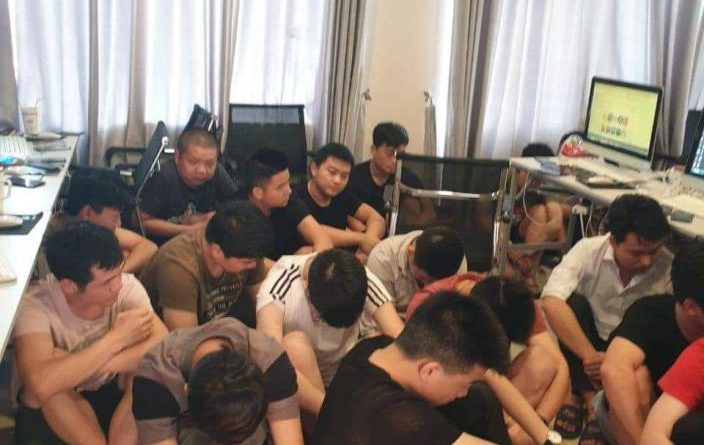
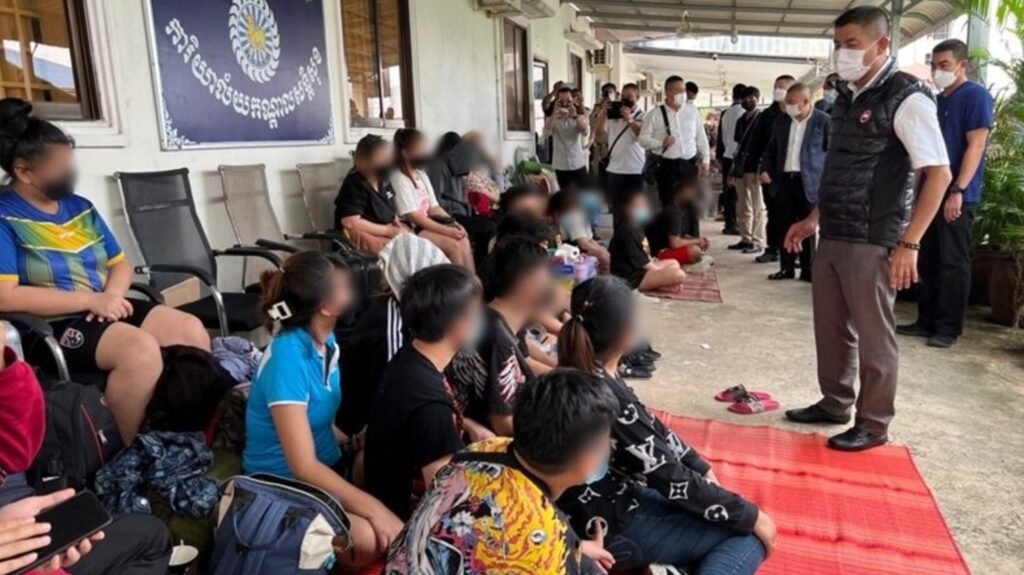
Cyber slavery in Southeast Asia may constitute “one of the largest coordinated trafficking in persons operations in history,” according to a 2023 report from the United Nations Office on Drugs and Crime (UNODC).[3]
The UNODC report says that the scam industry in an unnamed country in the region may be generating between $7.5 billion and $12 billion in receipts, or about half that country’s GDP.
There can be no doubt that the UNODC is referring to Cambodia. The countries where cyber-slavery compounds are known to operate on the largest scale are Cambodia and Myanmar. As UNODC notes, the compounds were able to scale up much more quickly in Cambodia than in Myanmar.
In Cambodia, well-established organized crime groups have simply modified existing structures such as casinos and hotels and turned them into scam centers. In Myanmar, compound structures have had to be purpose-built. UNODC estimates there may be at least 100,000 victims of trafficking for forced criminality in Cambodia alone.
Organized crime on such a massive scale is not possible without official complicity. That complicity extends from the lower levels of Cambodian law enforcement to the very top.UNODC reports that national immigration officials have been facilitating irregular entry of trafficking victims into the destination country, facilitating fraudulent visa stamps in victims’ passports and sending released victims back to organized crime gangs to work in other compounds. Cyber slavery victims who thought they had been rescued by the Cambodian police have reported that the police are ready and willing to sell them back to the slave masters. [4]
Police Wait Outside
The evidence of government complicity in Cambodia is overwhelming. Cambodian authorities have repeatedly contradicted Thai reports of the rescue of Thai nationals from Cambodian cyber-scam compounds, seemingly in an attempt to manage perceptions of the extent of the problem. [5] The Voice of Democracy (VOD) media outlet in Cambodia was shut down by Hun Sen in February 2023 after publishing more than 120 articles on human trafficking and scams in Cambodia since November 2021. The Age newspaper in Australia has reported that Chen Al Len is director of KB Hotel in Sihanoukville, where victims were trafficked and sold to scam companies. Chen Al Len is a known business associate of Hun Sen’s nephew Hun To. [6]
Members of Chinese organized crime leaders have become naturalized as Cambodian citizens and appointed as advisers to the Hun family regime. The Prince Group has been linked with a string of cyber-scam operations in Cambodia in a three-part investigation by Radio Free Asia. The company was founded by Chen Zhi, a Chinese émigré who became a naturalized Cambodian in 2014. In 2017, Chen Zhi was appointed as an adviser to Cambodia’s Interior Ministry. [7] He became an advisor to Hun Sen in 2020 and accompanied the former prime minister on a diplomatic mission to Cuba. [8]
In Cambodia, the anti-trafficking police does not even lead investigations into cyber-slavery. This is the responsibility of the Anti-Gambling Taskforce under the Interior Ministry. An unnamed NGO told UNODC that in Cambodia, “the police will go to the compound, ask permission. They feel like they don’t have any jurisdiction there. They ask for permission to be there, and give the list of victims’ names. The guards will look only for those names. And the police wait outside.”
Thailand’s deputy national police chief Surachate Hakparn said in 2023 that he confronted deputy Cambodian prime minister Neth Savoeun over Cambodian official complicity in cyber slavery and that Cambodian officials tried to sabotage an attempt to rescue Thai victims. [9]
The recent raids are not the first time that the authorities have made a public show of dealing with the issue. A similar “crackdown” in Cambodia was launched in September 2022 with the stated objective of closing down online scam operations.
UNODC found that the scam compounds did not stay closed for long. Trafficking victims were simply temporarily transferred to hotels or other locations, before being sent back to the same or other compounds in Cambodia or Myanmar. The “crackdown” simply led to the scam centers spreading out from Sihanoukville to other parts of Cambodia, including Oddar Meanchey, O’Smach, and Pursat, UNODC says.
Foreign Government Actions
Foreign governments must accept that they cannot rely on the Cambodian authorities to tackle the problem. Governments must do more to protect their own citizens. This starts with an acceptance that cyber-slavery cases in Cambodia and the region are not holidays in Southeast Asia which went wrong. Such a response is simply taking the path of least resistance.
• People engaged in forced criminality are victims of human trafficking. They are not criminals. They need to be helped to recover rather than being punished, and can provide valuable information on cyber-slavery operations.
• Banks and crypto-currency exchanges must do more to detect and question sudden unusual patterns of money transfer. If they won’t do it voluntarily, they should be compelled by regulations to do so.
• Foreign government embassies in Southeast Asia need more training and resources to be able to provide counselling support to victims who have been rescued and to enable them to travel back home.
• There’s a need for a more pro-active approach to prevention. Information notices should be posted on social media platforms and at airports warning of the dangers of accepting work from employers in Southeast Asia who lack any verifiable credentials.
• The compound managers rely on trafficking gangs who operate in the countries where they recruit the scammers. Governments must give a much higher priority to smashing these trafficking rings.
• An independent international committee needs to be created to investigate the real sources of the wealth of the most senior Cambodian government officials, police and military chiefs.
[2] Griffin, John M. and Mei, Kevin, How Do Crypto Flows Finance Slavery? The Economics of Pig Butchering (February 29, 2024). How Do Crypto Flows Finance Slavery? The Economics of Pig Butchering by John M. Griffin, Kevin Mei :: SSRN
[3] Casinos, cyber fraud, and trafficking in persons for forced criminality in Southeast Asia, UNODC, September 2023. TiP_for_FC_Policy_Report.pdf (unodc.org)
[6] The Laos fraud factory trapping the online scammer targeting you online (theage.com.au)
[7] Part I: Chinese courts go after ‘notorious’ Cambodian conglomerate (rfa.org)
[8] Hun Sen ally linked to secretive billion-dollar Cuban cigar deal — Radio Free Asia (rfa.org)
[9] Cyber-scam industry booms in plain sight in Cambodia (bangkokpost.com)
